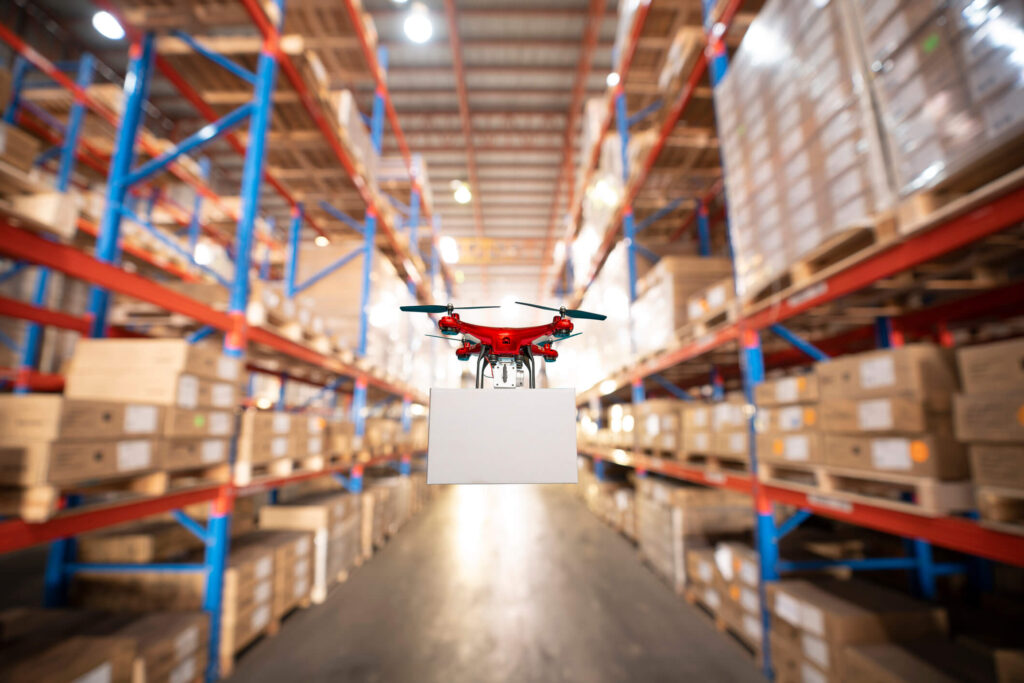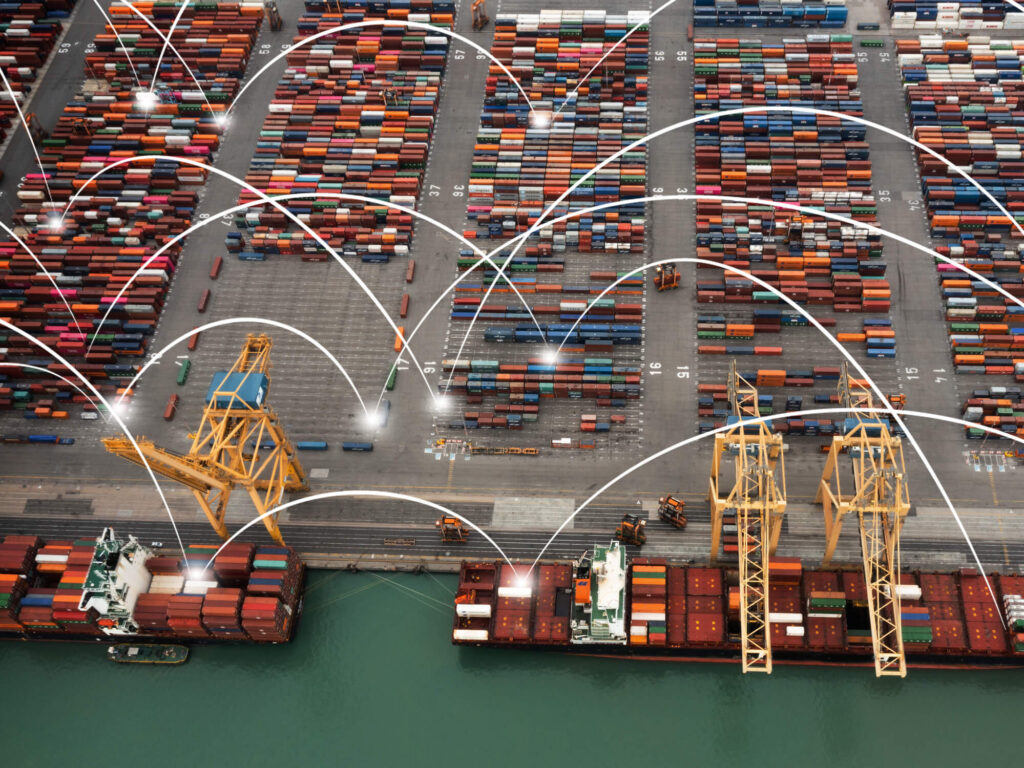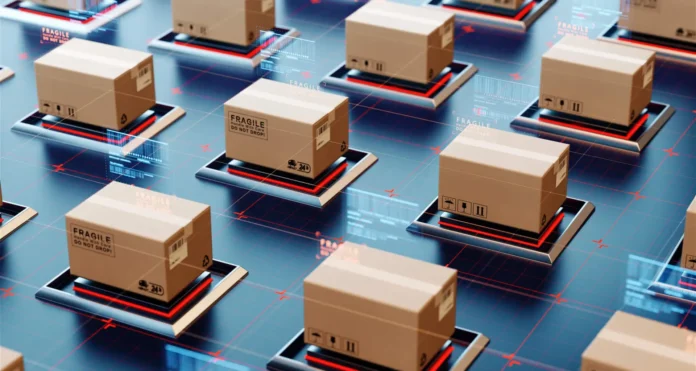The integration of blockchain into supply chain management represents a revolutionary advancement in monitoring and securing transactions at every stage of the process. While widely recognized for its central role in cryptocurrencies like Bitcoin, blockchain has much broader potential, particularly in areas beyond finance.
It provides a decentralized ledger that is accessible to all stakeholders in the supply chain, yet immutable, ensuring unprecedented transparency and efficiency in product tracking, inventory management, and logistics. By adopting blockchain, companies can not only optimize operational efficiency and reduce costs, but also strengthen trust with their suppliers and customers.
Understanding Blockchain Technology

Blockchain technology is a decentralized digital ledger that records transactions across multiple computers, preventing retroactive changes to records without altering all subsequent blocks. The core principles of this technology are immutability, security, and transparency. Each new transaction is recorded in the ledger of all participants, with each blockchain containing multiple transactions.
Thanks to its decentralization and encryption, blockchain minimizes the risk of fraud or tampering, ensuring data security. Today, this technology finds applications in various sectors, including smart factories and supply chain management.
“Blockchain can significantly optimize supply chains by accelerating and reducing the cost of product delivery, strengthening traceability, improving coordination between partners, and facilitating access to financing.”
Overview of Supply Chain Management and its Challenges
Supply chain management (SCM) involves overseeing the flow of products and services, encompassing all operations that transform raw materials into finished products. As one of the most crucial sectors of the global economy, SCM aims to streamline a company’s procurement processes to increase customer value and strengthen its competitive advantage in the marketplace.
However, this management faces various challenges, such as a lack of transparency, inefficiency due to the use of paper-based systems, and difficulty tracing the origin and verification of items throughout the supply chain. These obstacles can lead to delays, additional costs, and a loss of customer trust.
Benefits of Integrating Blockchain into the Supply Chain

Increased transparency
Transparency in supply chain management is significantly enhanced with blockchain technology. Authorized parties can monitor and record every transaction related to product transportation in real time, reducing the risk of fraud and errors, while facilitating more efficient recall and dispute management. Additionally, companies can easily demonstrate regulatory compliance because the required data is quickly and reliably accessible.
Improved traceability
Traceability is essential in supply chains, particularly in sensitive sectors such as food and medicine, where consumers are particularly attentive to the provenance and history of products. Blockchain technology provides an immutable record of each product’s journey from manufacturer to retailer.
In the event of a quality issue, this feature allows companies to quickly trace the origin of items, thus strengthening consumer trust. Furthermore, blockchain is a valuable tool for preventing counterfeiting and ensuring ethical standards are met throughout the supply chain.
Increased process efficiency
Blockchain technology streamlines supply chain operations, significantly increasing overall efficiency. By automating critical processes and reducing reliance on paper-based systems, blockchain reduces the time and costs associated with document processing and verification.
This is particularly beneficial for expediting customs clearance and international cargo release procedures, which are often slowed down by complex documentation requirements. Furthermore, by integrating data from various sources into a unified framework, blockchain platforms enable companies to better manage their supply chains and respond quickly to changing market and operational requirements.
Concrete applications of blockchain in the supply chain

Case studies of successful blockchain implementations
Notable applications of blockchain technology have been successfully implemented in various supply chain processes across several industries. A notable example is Walmart’s use of blockchain in collaboration with IBM to track production throughout its supply chain.
This initiative allows Walmart to trace the origin of more than 25 products from five separate suppliers. With this technology, Walmart has significantly improved the security and efficiency of its supply chain, reducing the time required to trace the origin of food from days to just seconds.
Another notable example is Deloitte, which collaborated with a client to develop a real-time shipment tracking system, creating the blockchain technology “Track and Trace” . This system provides real-time tracking of cross-border cargo by recording location data on a single, immutable ledger, using Hyperledger Fabric, Thingstream, and AWS technologies.
By integrating sensor data on shipments, all parties involved – shipper, loader, and receiver – benefit from a reliable and holistic view of the lifespan of each shipment. This improves cooperation and transparency throughout the supply chain.
The impact of blockchain on different sectors of activity
Blockchain has had a profoundly revolutionary impact on many industries. The following examples illustrate how blockchain technology, thanks to its increased efficiency and transparency capabilities, has become a key element of supply chain management in various sectors:
- Pharmaceuticals: Blockchain plays a crucial role in combating fraud and strengthening traceability within the pharmaceutical supply chain. By providing an immutable record of transactions and product movements, it helps verify the authenticity of medicines, prevent counterfeiting, and ensure that products follow a transparent and safety-compliant path.
- Automotive: Major automakers are integrating blockchain technology to track raw material sourcing and ensure compliance with legal and regulatory requirements.
- Agriculture: Farmers, distributors, and retailers are adopting blockchain technology to track product provenance, ensure food safety, and minimize losses from recalls.
- Factories: Blockchain improves the visibility and efficiency of industrial operations while reducing waste. By facilitating the secure and transparent sharing of data on operations, supply networks, and machinery, it enables more precise resource management, optimizes production processes, and improves coordination between different actors in the value chain.
Challenges and Obstacles to Blockchain Implementation in Supply Chain
Although blockchain is a key technology in 2024 , its implementation in supply chain management faces several obstacles. Challenges include regulatory constraints, integration difficulties, and security concerns. Despite its security benefits, blockchain is not immune to threats, such as interface point vulnerabilities and 51% attacks . Integrating blockchain with existing systems can be costly and complex, often requiring significant updates or replacements. Additionally, regulatory compliance is complicated by the decentralized and global nature of blockchain, which requires navigating various national standards. To fully realize the potential of blockchain in supply chain management, it is crucial to overcome these challenges.
The Future of Blockchain in Supply Chain Management
Blockchain technology has a promising future in supply chain management, particularly thanks to innovations such as smart contracts, which automate agreements, reduce errors, and generate cost savings. Adoption by SMEs will be facilitated by increasingly user-friendly blockchain platforms, with improvements in integration with existing ERP systems. Combined with Internet of Things (IoT) devices, blockchain will improve real-time tracking, increasing traceability and transparency. This synergy will strengthen stakeholder confidence, reduce risks, and boost business efficiency. Customers will benefit from guaranteed product authenticity, faster deliveries, and potentially more competitive prices, which will strengthen their trust in brands.
Conclusion
In supply chain management, blockchain technology addresses crucial issues such as improved efficiency, data security, and transparency. By integrating blockchain, companies can better control their supply chain, ensuring that every step is accurately recorded and validated. This technology strengthens stakeholder trust, streamlines processes, and reduces costs associated with traditional methods. As more companies become aware of these benefits, the integration of blockchain into supply chain systems is expected to become more widespread, setting a new standard for international trade management. In short, the adoption of blockchain technology in supply chain management represents a major advancement that will redefine global shipping practices in the future.


